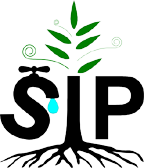2019 Jun 13, 08:15 PM
Hi all! I’ve been looking at using OpenSprinkler Pi edition however I’d like to make my own relay units and so far haven’t managed to work out where I would even start with this. I then came across SIP which has now got me interested in running this instead.
I have a few questions to start with though which I hope is ok. First of all is there just a generic setup and user guide?
Secondly, to use multiple relays I believe I need to use either shift registers or I2C chips? Would sometime be able to point me in the direction as to where I would set this config up? I’m hoping that in doing this I would be able to use this method for moisture sensors too.
Look forward to starting this project
Thanks
I have a few questions to start with though which I hope is ok. First of all is there just a generic setup and user guide?
Secondly, to use multiple relays I believe I need to use either shift registers or I2C chips? Would sometime be able to point me in the direction as to where I would set this config up? I’m hoping that in doing this I would be able to use this method for moisture sensors too.
Look forward to starting this project

Thanks




